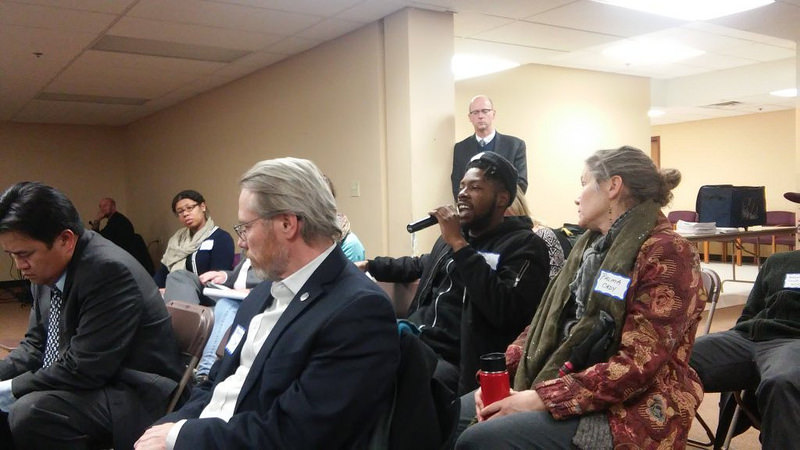

Share
A proposal for the City of Minneapolis to mandate that employers provide earned sick and safe time has passed a committee studying the idea and will be drafted into an ordinance.
The City Council voted Friday to create a new work group to respond to the recommendations issued by the Workplace Regulations Partnership Group and return to the Council by May 5 with a proposed ordinance. Read the full report here.
The City Council created the Partnership Group in October to seek broader community input in the face of business community opposition to elements of the Working Families Agenda, a collection of policies proposed by Mayor Betsy Hodges and supported by labor and community groups.
The 17-member Partnership Group convened 14 listening sessions to hear from workers and business in different industries, seeking input about issues related to earned sick and safe time — and workers’ lack of those benefits.
Among the findings: “estimates suggest that between one-third to one-half of Minneapolis residents do not have access to paid sick time, with those residents more likely to be women, people of color, and concentrated among lower-wage earners, working less than full-time.”
The Partnership Group voted 13-1 to recommend the Minneapolis City Council adopt a policy with these elements:
- All workers — full-time, part-time, and temporary— who work at least 80 hours in a year should be eligible to earn sick time;
- For businesses with four or more employees, sick time would be paid;
- For “micro-employers” with three or fewer employees, sick time need not be paid;
- Workers would earn one hour of sick time for every 30 hours worked;
- Workers could earn 48 hours (six days) per year and hold up to 80 hours in a “bank;”
- The policy would not apply to workers whose jobs offer benefits that meet or exceed these standards.
“We’re excited and feel strongly about the recommendations we’re putting forward,” said Chelsie Glaubitz Gabiou, president of the Minneapolis Regional Labor Federation, who served on the Partnership Group.
“It was a process that involved listening to hundreds of workers and employers and tough negotiations among stakeholders,” she added.
Glaubitz Gabiou explained why labor unions — whose members generally receive paid sick time as part of collective bargaining agreements — should be involved in supporting the Partnership Group’s recommendations: “In this time of the changing nature of work, it’s particularly important we show all workers — including low-income workers — that the labor movement has your back,” she said. “Hopefully, this will inspire more workers to think about forming unions in their own workplaces.”

